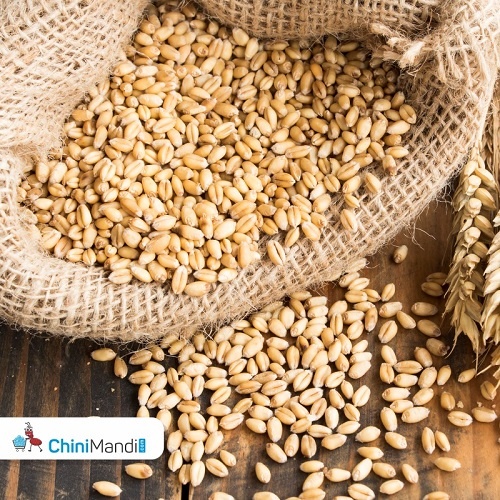New Delhi [India], June 13 (ANI): Food and Public Distribution Secretary Sanjeev Chopra on Tuesday held a video conference with food secretaries of all states and discussed ways to benefit citizens by cooling down of wheat prices.
The meeting comes a day after the centre imposed stock limits on wheat applicable to wholesalers, traders, retailers, big chain retailers and processors; and decided to offload wheat and rice under Open Market Sale Scheme. During the course of the meeting, stock limits on wheat that were imposed last evening and are in effect currently were discussed in detail.
“The measures (to impose stock limits and offloading of wheat and rice) were aimed at cooling down the prices and prevent hoarding and speculation,” an official release from the Ministry of Consumer Affairs, Food and Public Distribution said.
“The Centre has asked States to obtain disclosures of stock of Wheat with the Wholesalers/Traders, Retailers, Big Chain Retailers and Processors to check the unfair practices of any kind and to bring transparency in the availability of Wheat. A User Manual regarding submitting the stock has also been shared with State Government for ease of filling up of the data on the portal (https://evegoils.nic.in/wsp/login) of the Department of Food and Public Distribution. In case the stocks held by them are higher than the prescribed limit then they have to bring the same to the prescribed stock limits within 30 days of issue of this notification,” the release added.
Stock limits will be applicable for each entity individually such as traders/wholesalers- 3000 tonne; Retailer- 10 tonne for each of the retail outlets; Big Chain Retailer- 10 tonne for each outlet and 3000 tonne at all their depots and Processors – 75 per cent of annual installed capacity.
The centre has also decided to offload 15 lakh tonnes of wheat in the first phase from central pool stock under Open Market Sale Scheme to control retail prices of wheat. Wheat will be sold in lot sizes of 10-100 tonnes. Registration for this auction is open on the FCI’s e-auction platform.
It has also been decided to offload rice under the open market scheme in order to moderate the prices. The quantity for the first phase of the e-auction for rice will be decided shortly.
The imposition of stock limits on wheat along with offloading of wheat and rice are part of the consistent efforts made by the government to stabilize the prices of essential commodities.
To manage the overall food security of the country as well as meet the needs of the neighbouring and other vulnerable countries amid the double whammy, India then amended the export policy of wheat by putting its export under the “prohibited” category, which is still in force.
Multiple rounds of heat waves in several wheat-growing regions in India before the rabi harvest last year affected crops. Wheat pods in the mature stage typically shrink if overexposed to heat.
This year too, there were reports from various key growing states that unseasonal rains have flattened standing crops in some regions. Wheat, a rabi crop was in an advanced maturing stage and was expected to hit mandis in a fortnight or so.














